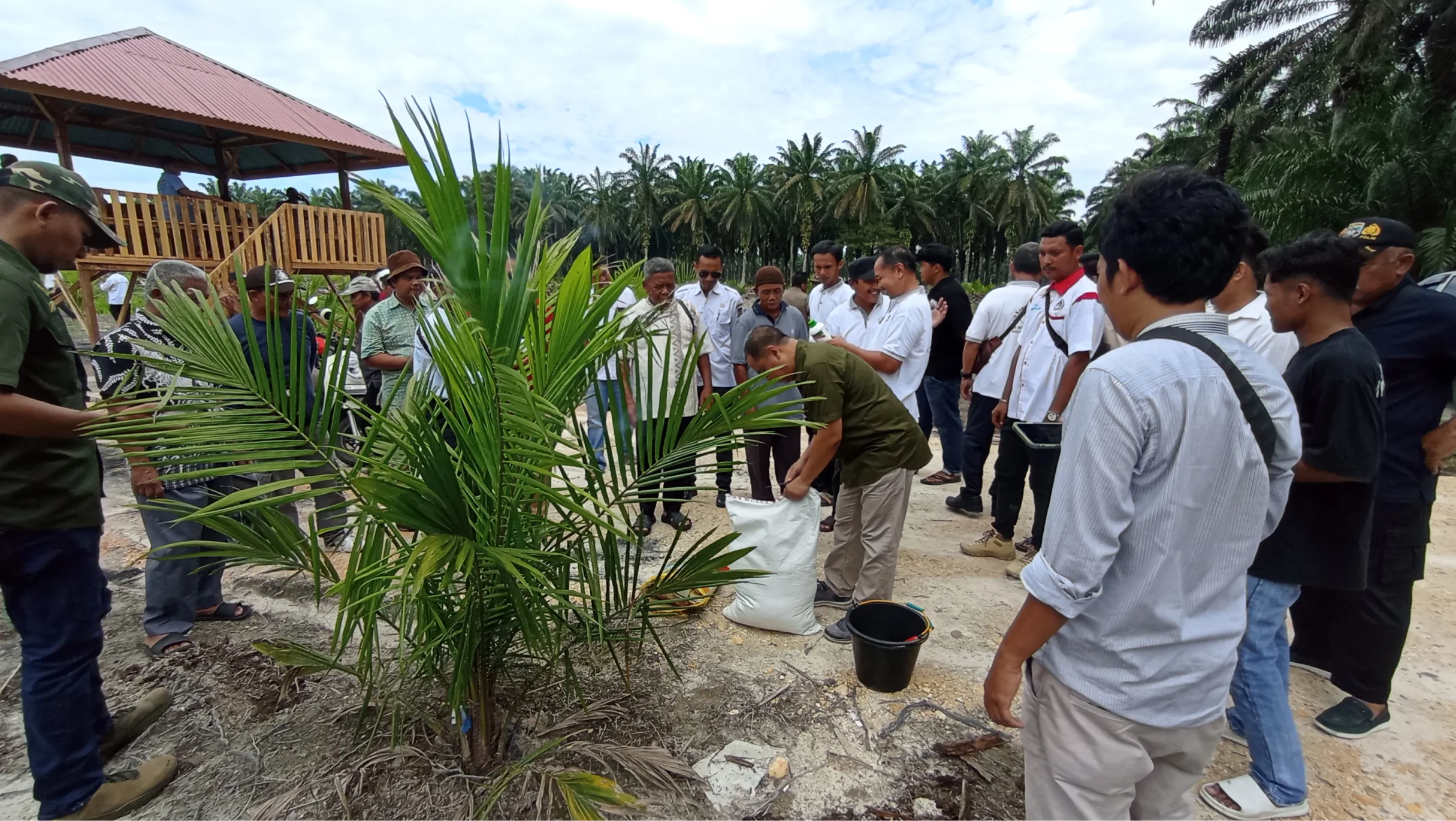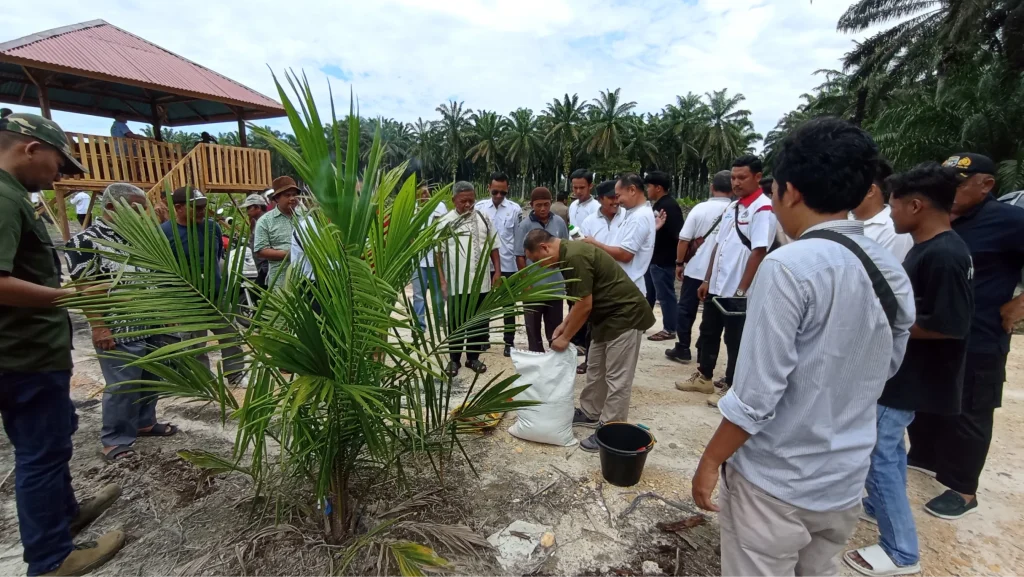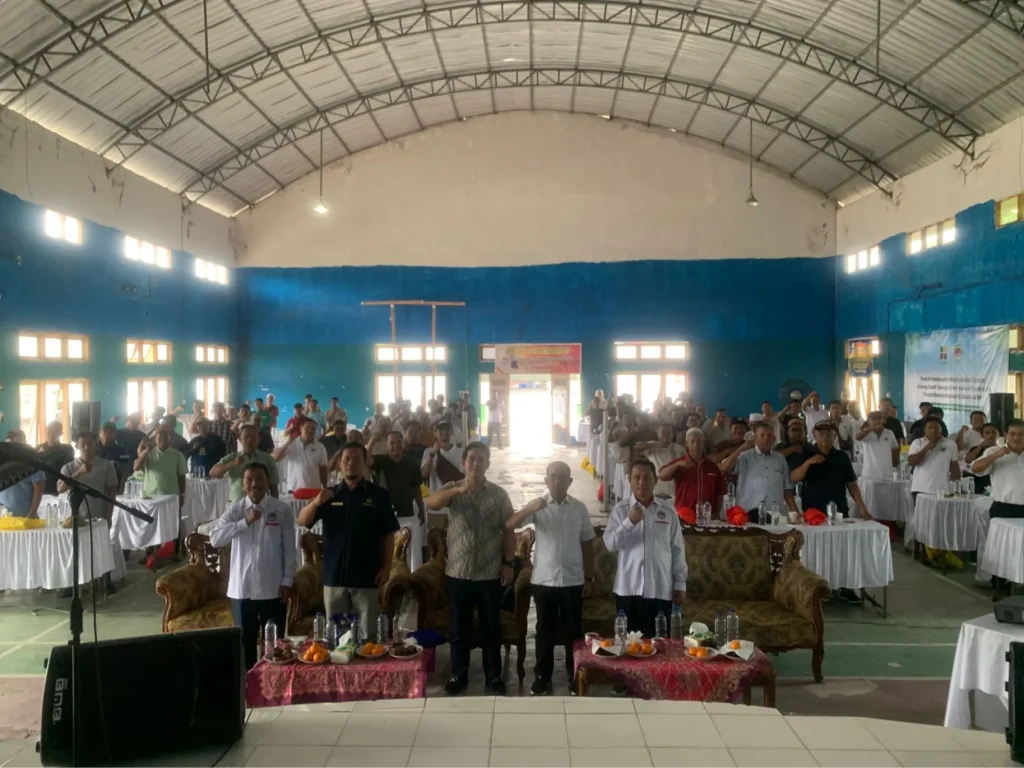

Indonesia is the largest palm oil producer in the world, with approximately 46 million metric tons produced annually, followed by Malaysia with 18 million metric tons and Thailand with 3.3 million metric tons. This massive industry includes not only large-scale companies but also smallholder farmers who partner with companies under a scheme commonly known as plasma. These plasma farmers are organized under the Indonesian Palm Oil Farmers Association (ASPEKPIR).
Supported by the Plantation Fund Management Agency (BPDP), ASPEKPIR, for the first time, invited Adakarbon to conduct a workshop on biochar production from palm oil empty fruit bunches (EFB) in Riau Province—home to the country’s largest palm oil industry.
Adakarbon’s role was to introduce biochar to farmers and demonstrate how to produce it using a basic soil pit method. The workshop series was held across three regions: Kampar in May, Rokan Hulu in June, and Pelalawan in July 2025.
Each workshop began with an introduction to biochar and its benefits for agriculture, followed by a step-by-step explanation of the soil pit production method. The next session, led by Arif Firmansyah from Biotop Biofertilizer Company, focused on the interaction between biochar and biofertilizers, and their application in the field. The workshop concluded with a live demonstration of biochar production and use. Using biochar as a soil amendment not only supports soil health but also contributes to carbon sequestration—an important step toward addressing concerns over the sustainability of the palm oil industry.

The workshops reached over 300 farmers and local stakeholders, including cooperatives, government departments, district heads, and nearby companies. Farmers expressed strong interest in collaborating with cooperatives and local authorities to scale up biochar production and improve accessibility. BPDP also showed readiness to support continued action, as biochar application aligns with their mission to empower smallholder farmers and micro-enterprises (UMKM).
ASPEKPIR plans to replicate similar workshops in two other provinces where its members are located—South Sumatra and South Kalimantan. They have also established their own biochar production facility in Siak Regency, Riau, using the Kon-Tiki method.
Yayasan Agathis Dammara Karbon (Adakarbon) is a non-profit foundation committed to fostering sustainable environmental solutions through carbon sequestration (biochar) and reforestation initiatives.
© 2025 Yayasan Agathis Dammara Karbon. All rights reserved.